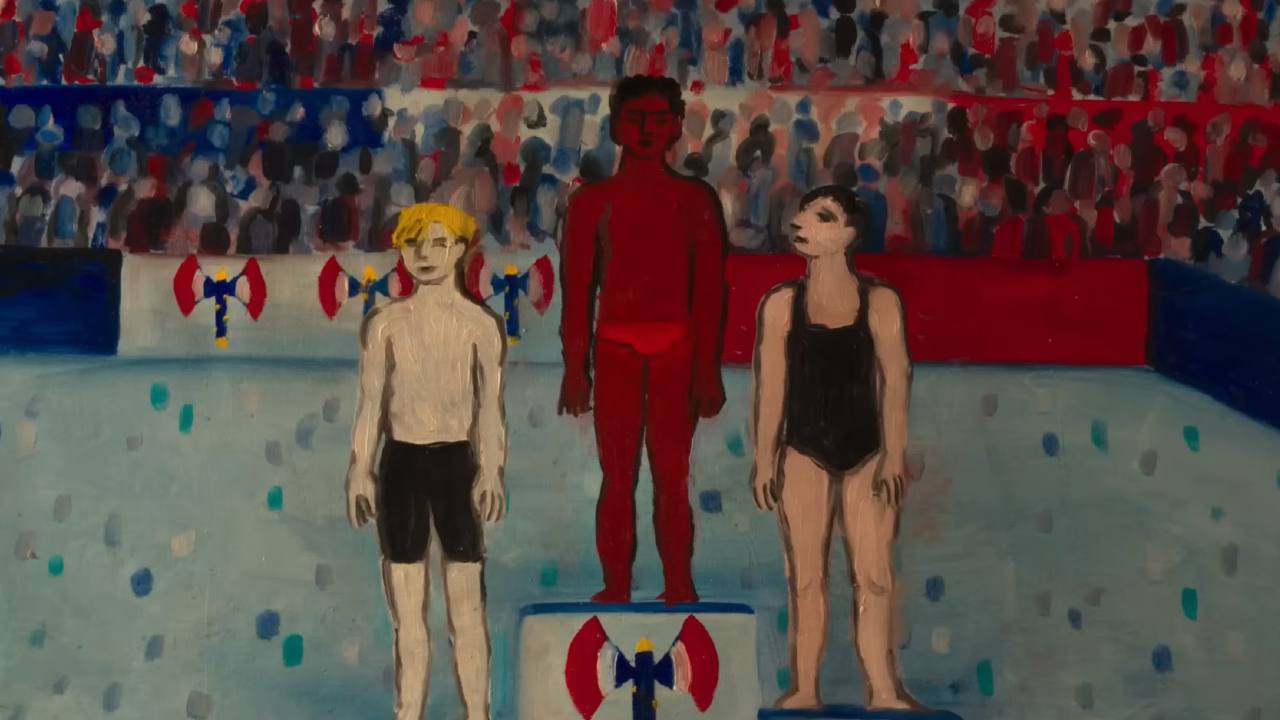Secret Origin is the story behind the creation of one of the world’s finest comic book companies. Of course, it is a story all about secret identities, so it shouldn’t be too much of a surprise to discover the filmmakers are trying to keep us from discovering a few things. Secret Origin: The Story of DC Comics is an exhaustive documentary on how the multimedia giant came to exist. It’s a series of new interviews with comic creators like Mark Waid, Gerard Jones, Dwayne McDuffie, Neil Gaiman, Louise Simonson, Denny O’Neill, Marv Wolfman, Mike Carlin, Neal Adams, Jim Lee, and more. There’s also tons of archive footage and interviews that cover seven decades of comic books, including some wonderful footage with legends like Julius Schwartz, Joe Kubert, Frank Miller, and Alan Moore. It should go without saying that there’s tons of comic book art, much of it being panned and scanned in that wonderful way the History Channel uses to make oil paintings dynamic.
On one level, this is a fantastic and very informative piece of work. There’s lots of historical stories about how DC Comics rose from a place for the “spicy pulps” to be one of two giants of the superhero industry today. We hear the story of Jerry Siegel and Joe Schuster and how they created the character of the last son of a doomed planet -- a character who was rejected by dozens of publishers before finding a home at DC Comics. There’s also the business side of the creation of characters like Batman, Wonder Woman, Captain Marvel, Plastic Man, and so many more. It touches on why the superheroes stayed somewhat distant from World War II, despite the heavy involvement of DC on so many levels, and the repercussions the war had on the industry for the next two decades. It takes us all the way into modern-age comics with The Dark Knight Returns, Watchmen, Kingdom Come, and the Vertigo line.
The documentary also features a huge amount of behind-the-scenes stories. I never knew that Jerry Siegel had lost his father in a robbery, nor the implications of how this shaped his greatest creation. Archive footage has Bob Kane explaining how he created “The Bat-Man” over a weekend to mirror the success of Superman -- mostly because he wanted to be making more money -- while Jones explains how Kane recreated himself into a more glamorous identity once he was successful. Did anyone know the Superman radio show thwarted the Klu Klux Klan for months? That Len Wein started writing The Flash because he happened to be standing in the DC office one day when Schwartz was on the warpath? Or that, years later, when Wein-the-editor first called Alan Moore to offer him Swamp Thing, Moore hung up thinking it was a practical joke?
There's a multi-media angle, too, of course. Starting with the Superman radio shows and Max Fleischer cartoons, the film covers all the various ways DC characters have been interpreted over the years. There are glimpses of tons of cartoons, Adam West as Batman, Lynda Carter as Wonder Woman, and of course Christopher Reeve as Superman.
However...
There are a couple of ugly trends in documentaries lately. One is the unskilled film that’s less documentary and more reality television. The other is the puff piece, and that’s what’s going on here. It’s not like this film says nasty things about the competition or talks about "what we’ve done vs. what they’ve done." Actually, if I were to show this movie to my folks, they’d come to the pretty logical conclusion that DC is the only company that’s printed comic books since some time in the late sixties.
Yep, that’s right. No one else exists, and it’s been pretty smooth sailing for the past several decades, all things considered. You’d never guess they’ve been running neck-and-neck with (sometimes even teaming up with) a certain other company that’s the home of marvels like web-slingers, thunder gods, and star-spangled WWII veterans. There’s no mention at all of the 30-odd-year lawsuit between DC and the families of Siegel and Schuster over the rights to Superman and certain spin-off characters. Heck, these days we’re all used to groups trying to rewrite history (one bozo tried to tell me last month that Hitler was actually very liberal and didn’t lean to the political right at all), but it still takes some serious cajones to cherry-pick interviews with Alan Moore and leave the impression that his time with DC was something he looks back on with satisfaction and contentment. And yeah, I’m fully aware of the irony of falling back on a Hitler analogy to show how extremely they’ve distorted this view of Mr. Moore, everyone’s favorite anarchist.
Your Daily Blend of Entertainment News
I wasn’t expecting any of these comics legends to admit to killing hookers or clubbing baby seals or anything like that. This film is so antiseptic squeaky-clean, though, that it just rings fake. It’s tough to call something a documentary when it completely ignores the competition, a decades-old legal battle, and an angry spat over creator rights that’s spilled into the mainstream on two major motion pictures now.
Really, this is just a few small steps above being a press kit, and not that far from being a sampler for Warner Brothers’ DVD back catalog of cartoons and movies. If you’re a big comics fan, it’s worth watching for the history, skewed as it is, but it’s tough to recommend buying it. Well it’s definitely a DVD. I checked both sides. All things considered, I expected this disc to be loaded with previews for everything from the Super Friends cartoon to the V for Vendetta movie. Alas, there’s nothing but some optional subtitles. Ah, well. Superman can’t be there to save the day every time.

